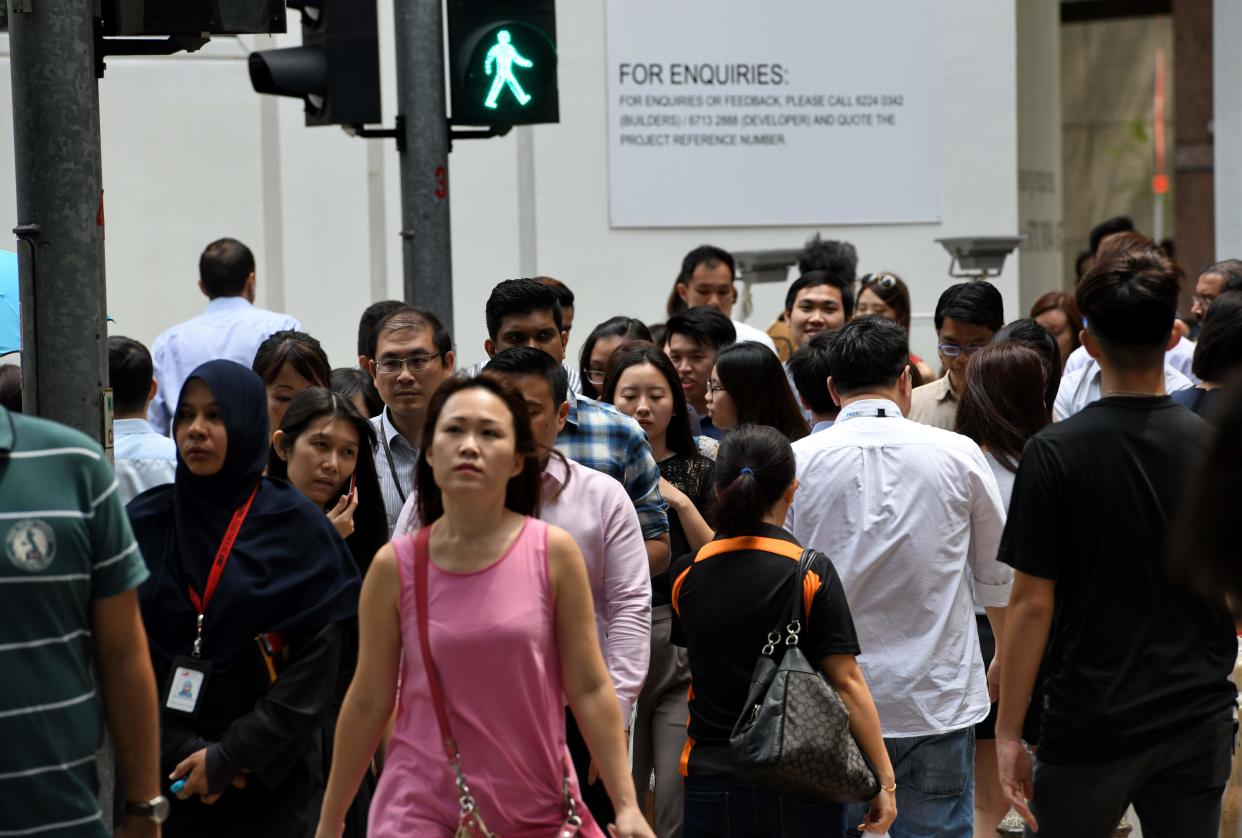COMMENT: Don't stop talking about privilege in Singapore

By Laavanya Kathiravelu
We live in a politically charged global era. Ground-up movements such as #MeToo and Black Lives Matter resonate far beyond their geographical starting points. Especially among young people in Singapore, there is a growing sense that unfairness and inequality need to be questioned and challenged, as has become apparent through the recent calls for action over how sexual harassment was dealt with in a local university.
It is often in times of social upheaval and uncertainty that dominant narratives and ideas are challenged. Within this climate, the idea of privilege – of having an advantage over another through no real effort of one’s own – has also much gained currency.
Much of this interest has been prompted by sociologist Teo You Yenn’s “This is What Inequality Looks Like” book and other evidence that points to the unequal terrain that is systematically reproducing divides between the poor and rich.
The problematic existence of high income alongside wealth inequality points to inconsistencies in Singapore’s model of meritocracy. Similarly, the continued institution of racialised privilege brings multiracialism - one of the country’s key pillars in managing diversity - into question.
There is an increasing number of voices who point out to the existence of Chinese elitism through Special Assistance Plan (SAP) schools in Singapore or the importance of not marginalising minorities as key to upholding the egalitarian ideal of identical opportunities for all “regardless of race, language or religion”. They are part of a rising chorus that is becoming increasingly aware of the uneven playing field for ethnic and racial minorities in Singapore.
Across two days in the beginning of May, a group of educators and interested members of the public came together to consider the idea of invisible privilege and if it could tell us something important about the kinds of injustices and inequalities that people face in Singapore and other parts of Asia.
The conversations that took place during the workshop at the Asia Research Institute in the National University of Singapore were mature and probing.
Significantly, they did not shy away from the “OB markers” that have characterised much of public debate about race and inequality in Singapore. The collective will to acknowledge inequality and make change was overwhelmingly present.
A pilot took the microphone to speak about how women are vastly underrepresented in his profession, discriminated based purely on their gender.
Teachers spoke about how they gently broach privilege in asking their students to consider how less able bodied negotiate the touch screens at ATMs.
Papers delivered by Singaporean researchers included those that showed job prospects invariably favoured Chinese Singaporeans over their Malay counterparts as they had better social connections and networks.
An analysis of housing patterns in Singapore revealed that the Ethnic Integration Policy (EIP) that was conceived to prevent the formation of ethnic ghettos has enabled over representation of ethnic Chinese in certain neighbourhoods, while ethnic minorities selling their flats have to contend with lower than market rates.
What became quickly obvious in the impassioned responses was that the language of privilege has a galvanising and emotive appeal. While racial discrimination or racism must also be acknowledged and legislated against, privilege is more difficult to dismantle.
The idea of privilege is powerful precisely because it also speaks about the passive. It conveys how merely through inaction, we allow for inequality and unfair discrimination to perpetuate.
It is the structural basis of such privilege, whether it is lack of meritocratic education systems, or integration policies that generate unfair consequences. Individual acts must be understood as being shaped by those structures.
In Singapore, privilege at times takes on a racialised character. This adds an uncomfortable dimension to discussions of inequality, as race cannot be altered, through education, hard work or effort.
While the existence of Chinese privilege can be dismissed as simply due to the Chinese population being the overwhelming majority ethnic group, it is not a “natural” development and is held up by structures that underpin everyday social, political and economic life.
Acknowledging and opposing Chinese privilege is thus not opposing Chinese people but an objection of inequality and unfairness embedded in society. The language of privilege gives us a way to articulate how this is a collective problem and one that requires more than just individual actions to remedy.
So where do we go from here? The conversation has begun, and we cannot go backward. We should aim to build on the consensus that we are already building.
All of us can continue to pay attention to issues of power, inequality and unconscious or invisible privilege in our private and public lives. Those of us who enjoy privilege must admit to the gains that we experience, and make efforts to understand the positions of the disadvantaged.
For those of us who are educators, it is equally important that we include discussions of privilege and inequality in our teaching and pedagogy.
Recognising fault-lines in society takes experience and self-reflection. It is testament to our maturity as a nation that we can now have difficult conversations such as on inequality and racialised privilege.
We should draw collective energy from this political moment to keep talking. It is only in acknowledging the shared costs to our nation that we can begin to dismantle privilege and create a more egalitarian Singapore.
Laavanya Kathiravelu is an assistant professor at the division of sociology at the Nanyang Technological University.
Her research and teaching interests lie in the intersections between migration and citizenship, urban studies, as well as race and ethnicity. Her first book “Migrant Dubai: low wage workers and the construction of a Global City” was published in 2016.
More Singapore stories:
LTA carried out more than 4,600 enforcement operations in first half of 2019
More Singaporeans support banning high-sugar drinks than for sugar tax: survey
Two brothers whose organ donations change lives and Singapore's medical history


